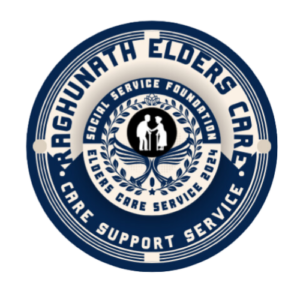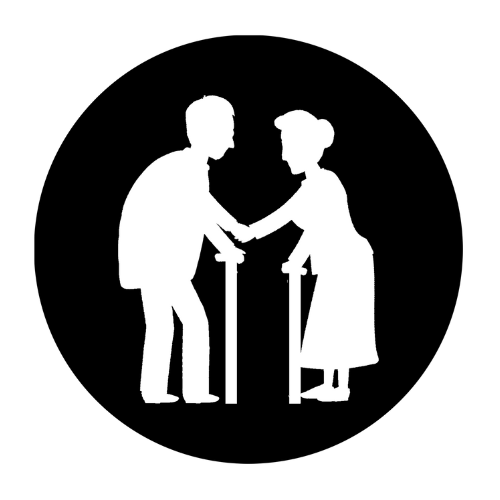- As the global population ages, the importance of providing proper care and support for elderly individuals has never been more crucial. Elder care, a term that encompasses a wide range of services aimed at assisting senior citizens with their daily living activities, health care, and emotional well-being, is increasingly becoming an essential aspect of modern society. With the rise in life expectancy and the changing dynamics of family structures, more and more elderly individuals are living longer and, in many cases, with complex health and personal needs. Elder care addresses these needs, offering both practical and emotional support to ensure that seniors can live their lives with dignity, comfort, and security.
Understanding Elder Car
- Elder care refers to the services and assistance provided to seniors who need help with various aspects of their lives, ranging from basic personal care to medical support and emotional companionship. As individuals age, they may face physical, cognitive, or emotional challenges that make it difficult for them to manage on their own. Elder care is designed to help seniors with tasks such as bathing, dressing, eating, mobility, and managing chronic health conditions. It also includes offering companionship, social interaction, and assistance with navigating daily life.
- The need for elder care services is growing worldwide. According to the World Health Organization (WHO), the number of people aged 60 years or older is expected to reach 2.1 billion by 2050, more than double the 900 million in 2015. This demographic shift highlights the growing demand for comprehensive elder care solutions. Elder care not only helps seniors live a fulfilling life but also offers peace of mind to families who may not be able to provide round-the-clock care..
- Types of Elder Care Services
- Elder care encompasses a broad spectrum of services, from in-home care to institutional care in nursing homes or assisted living facilities. The type of care required depends on the senior’s individual needs, health condition, and personal preferences. Some of the most common types of elder care services include:
1. In-Home Care
In-home care is a service where trained caregivers visit an elderly person’s home to provide assistance with activities of daily living (ADLs). This type of care is ideal for seniors who wish to remain in the comfort of their own home but need help with daily tasks. In-home care can be tailored to the individual’s needs, providing support for:
- Personal Care: Bathing, grooming, dressing, and hygiene.
- Mobility Assistance: Helping with walking, transfers from bed to chair, and general movement around the house.
- Medication Management: Reminding the senior to take their medications, assisting with organizing pills, and ensuring they follow prescribed regimens.
- Companionship: Providing social interaction and emotional support to combat loneliness and isolation, which are common issues among seniors.
- Household Assistance: Light housekeeping, meal preparation, shopping, and laundry services.
In-home care allows seniors to remain in a familiar and comfortable environment while receiving the necessary support to manage their daily routines. It can be a short-term service following a surgery or illness or a long-term solution for those with chronic conditions.
2. Assisted Living
Assisted living facilities are residential communities designed for seniors who require some assistance with daily activities but do not need the level of care provided in a nursing home. These facilities offer a balance between independence and support, providing seniors with their own living space while offering access to professional care and social opportunities. Services offered in assisted living facilities typically include:
- 24-hour supervision: Trained staff members are available to assist with emergencies or health concerns at any time.
- Personal Care: Assistance with activities like dressing, grooming, and bathing.
- Medication Management: Helping residents manage their prescriptions and ensure timely medication administration.
- Social Activities and Programs: Engaging residents in recreational activities, social events, and wellness programs.
- Meals and Housekeeping: Regular meals and housekeeping services are provided, ensuring residents maintain a clean and comfortable living space.
Assisted living is an ideal option for seniors who can still function independently but require help with certain tasks. It also offers a sense of community and a social network for those who may be isolated at home.
3. Nursing Homes
Nursing homes, or skilled nursing facilities, provide a higher level of care than assisted living facilities. These institutions are designed for seniors with significant medical needs or those who require constant supervision. Nursing homes are equipped to handle complex medical conditions, including chronic diseases, post-surgery recovery, and rehabilitation. Services in nursing homes typically include:
- Medical Care: Access to registered nurses and physicians who can provide medical treatment and monitor health conditions.
- Physical Therapy: Rehabilitation services for seniors recovering from surgery or injuries, as well as therapies for chronic conditions like arthritis or stroke recovery.
- 24-hour Supervision: Nursing homes provide continuous monitoring to ensure the safety and well-being of residents.
- End-of-Life Care (Hospice Care): Palliative care services are often provided in nursing homes for individuals with terminal illnesses, offering pain management and emotional support.
Nursing homes are a good choice for seniors with advanced medical needs or for those who need constant, round-the-clock care.
4. Respite Care
Respite care provides temporary relief for family caregivers who need a break from their caregiving duties. This type of care can be provided in a senior’s home or at an outside facility. Respite care is an important service because it helps reduce caregiver burnout and allows families to take time off for personal reasons or to attend to other responsibilities. Respite care services can be short-term, ranging from a few hours to several days, depending on the needs of the caregiver and the senior.
5. Palliative and Hospice Care
Palliative and hospice care are specialized services for individuals with serious, life-limiting illnesses. These services focus on providing relief from pain and symptoms rather than attempting to cure the underlying condition. Palliative care can be provided in various settings, including the home, hospitals, or nursing homes. Hospice care is specifically for individuals in the final stages of life and typically involves comprehensive end-of-life care, addressing both physical and emotional needs of the patient and their family.
Palliative care services include pain management, symptom control, emotional and psychological support, and spiritual care, while hospice care also offers support for families, helping them cope with the emotional aspects of caring for a loved one at the end of life.
Importance of Elder Care
Elder care is essential for several reasons, particularly as it provides senior citizens with the support they need to maintain their quality of life and independence. Some of the most significant benefits of elder care include:
1. Promoting Independence and Dignity
One of the key goals of elder care is to help seniors maintain their independence as much as possible. Whether it’s through in-home care services or assisted living, seniors are encouraged to perform tasks independently while receiving the assistance they need. This helps preserve their dignity and self-esteem, reducing feelings of dependence and helplessness.
2. Improving Physical and Emotional Well-Being
Elder care focuses on the physical, emotional, and mental health of seniors. With personalized care, seniors are encouraged to stay active, engage in social interactions, and maintain a healthy lifestyle. Moreover, emotional support is provided to combat feelings of loneliness and depression, which are prevalent in older adults who may face isolation.
3. Alleviating Family Caregiver Stress
Family members often take on the responsibility of caring for elderly relatives, which can be emotionally and physically draining. Elder care services offer relief for family caregivers by providing professional support. This enables families to balance their personal lives while ensuring that their loved ones receive the best care possible.
4. Providing Specialized Medical Care
Seniors often have specific medical needs, such as managing chronic diseases, recovering from surgery, or receiving rehabilitation. Elder care services offer specialized care, ensuring that seniors receive timely medical attention and proper management of their health conditions. Professional caregivers, nurses, and physicians monitor the health of elderly individuals, helping prevent medical complications and improving their overall health outcomes.
Conclusion
Elder care is an essential service that addresses the various needs of senior citizens, allowing them to live their later years with dignity, comfort, and support. As the population of older adults continues to grow, the demand for high-quality elder care will only increase. From in-home care and assisted living to nursing homes and respite care, there are many options available to ensure that seniors receive the care and attention they deserve.
By promoting independence, improving physical and emotional well-being, and offering specialized medical support, elder care services make a significant impact on the lives of seniors and their families. Whether provided by professional caregivers, family members, or institutions, elder care is a crucial component of ensuring that older individuals are able to live their lives with respect, care, and love.





